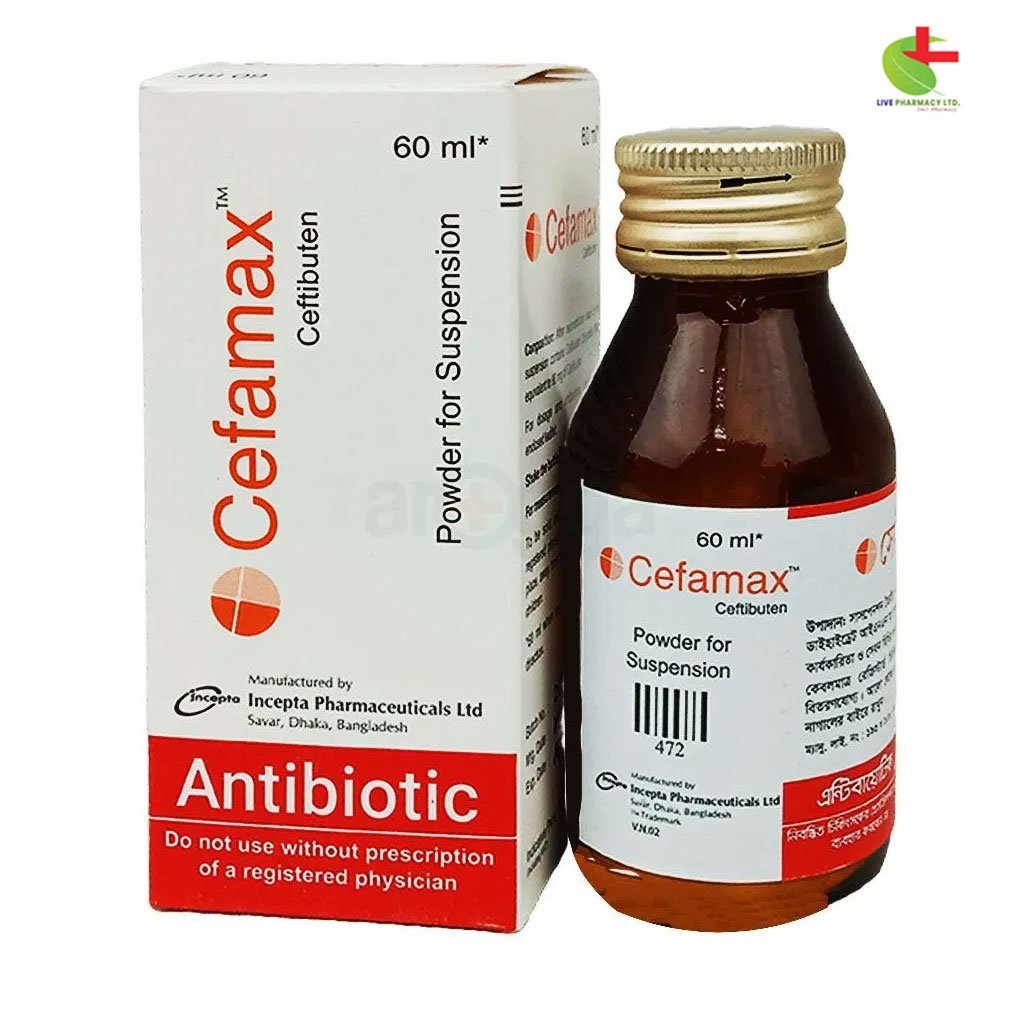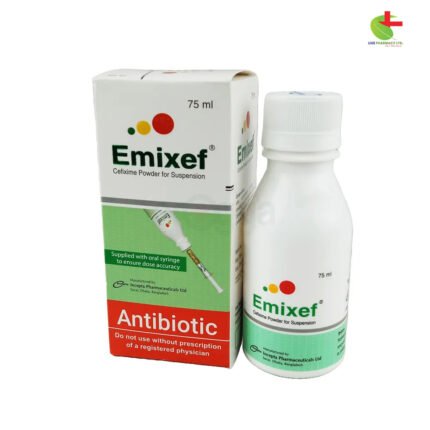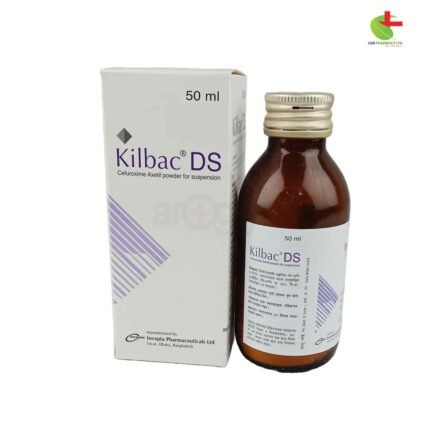Cefamax
480.00৳ Bottle (60ml)
- Cefamax is a semi-synthetic cephalosporin antibiotic indicated for treating mild to moderate infections, including bronchitis, otitis media, and tonsillitis caused by susceptible bacteria.
- It works by inhibiting bacterial cell wall synthesis, leading to cell death.
- Available in oral formulations for both adults and children, it is crucial to follow dosage instructions provided by healthcare professionals.
- Potential side effects include nausea, diarrhea, and dizziness; caution is advised during pregnancy and lactation.
- Always consult a registered healthcare professional before use.
 Brand
Brand
|
Incepta Pharmaceuticals Ltd |
|---|---|
 Generics
Generics
|
Ceftibuten Dihydrate |
 Type
Type
|
Powder for Suspension |
Indications
Cefamax is prescribed for the treatment of mild to moderate infections caused by susceptible strains of designated microorganisms in the following conditions:
- Acute Bacterial Exacerbations of Chronic Bronchitis: Effective against Haemophilus influenzae (including β-lactamase-producing strains), Moraxella catarrhalis (including β-lactamase-producing strains), and Streptococcus pneumoniae (only penicillin-susceptible strains).
- Acute Bacterial Otitis Media: Indicated for infections caused by Haemophilus influenzae (including β-lactamase-producing strains), Moraxella catarrhalis (including β-lactamase-producing strains), or Streptococcus pyogenes.
- Pharyngitis and Tonsillitis: Targeted treatment for infections caused by Streptococcus pyogenes.
Consult a registered healthcare professional before using this medication.
Pharmacology
Ceftibuten is the dihydrate salt form of Ceftibuten, classified as a semi-synthetic cephalosporin antibiotic for oral use. It exerts its bactericidal effects by binding to essential proteins in the bacterial cell wall, inhibiting cell wall synthesis and leading to bacterial cell death.
Dosage & Administration
Otitis Media
- Adults: 400 mg orally once daily for 10 days.
- Pediatrics (>6 months): 9 mg/kg/day (maximum 400 mg) once daily for 10 days.
Tonsillitis/Pharyngitis
- Adults: 400 mg orally once daily for 10 days.
- Pediatrics (>6 months): 9 mg/kg/day (maximum 400 mg) once daily for 10 days.
Bronchitis
- Adults: 400 mg orally once daily for 10 days.
- Pediatrics (>12 years): 400 mg orally once daily for 10 days.
Cystitis
- Adults: 400 mg orally once daily for 7 days.
- Pediatrics (>12 years): 400 mg orally once daily for 7 days.
Pneumonia
- Adults: 200 mg orally every 12 hours for 7 to 14 days.
- Pediatrics (>12 years): 200 mg orally every 12 hours for 7 to 14 days.
Sinusitis
- Adults: 400 mg orally once daily for 10 to 14 days.
- Pediatrics (>12 years): 400 mg orally once daily for 10 to 14 days.
Urinary Tract Infection
- Adults: 400 mg orally once daily for 10 days.
- Pediatrics (>6 months): 9 mg/kg/day (maximum 400 mg) once daily for 10 days.
Consult a registered healthcare professional before using this medication.
Interaction
Cefamax’s pharmacokinetic profile is not affected by Theophylline or antacids. However, Ranitidine increases both the Cmax and AUC of Cefamax.
Contraindications
Ceftibuten should not be administered to patients with a known allergy to cephalosporin antibiotics.
Side Effects
Possible side effects include nausea, headache, diarrhea, dyspepsia, dizziness, abdominal pain, and vomiting.
Pregnancy & Lactation
Categorized as Pregnancy Category B, Ceftibuten has not been studied in controlled human trials during pregnancy. It should only be used if the benefits clearly outweigh the risks. It is uncertain whether Ceftibuten is excreted in human breast milk, so caution is advised when administering this drug to nursing mothers.
Precautions & Warnings
Prolonged use of Cefamax, like other broad-spectrum antibiotics, may lead to the emergence of resistant organisms. Careful monitoring of the patient is essential, especially in those with renal impairment. Dose adjustments may be necessary for patients with varying degrees of renal insufficiency. Caution is advised for individuals with a history of gastrointestinal diseases, particularly colitis.
Use in Special Populations
Renal Impairment
- CrCl 5 to 29 ml/min: 2.25 mg/kg or 100 mg orally once daily.
- CrCl 30 to 49 ml/min: 4.5 mg/kg or 200 mg orally once daily.
Hepatic Impairment: No dose adjustment is required.
Therapeutic Class
Third Generation Cephalosporins
Reconstitution
- The small bottle contains purified water; the large bottle contains granules.
- Pour the entire contents of the purified water into the large bottle.
- Securely tighten the cap of the large bottle and shake for at least one minute.
- Use a measuring cup or dropper for the reconstituted suspension.
The prepared suspension should be consumed within 14 days if refrigerated. Shake the bottle well before each use.
Storage Conditions
Store below 25°C, away from light and moisture. For the suspension, after reconstitution, it can be used for 14 days when stored at 2° to 8°C. Keep out of reach of children.













Reviews
There are no reviews yet.